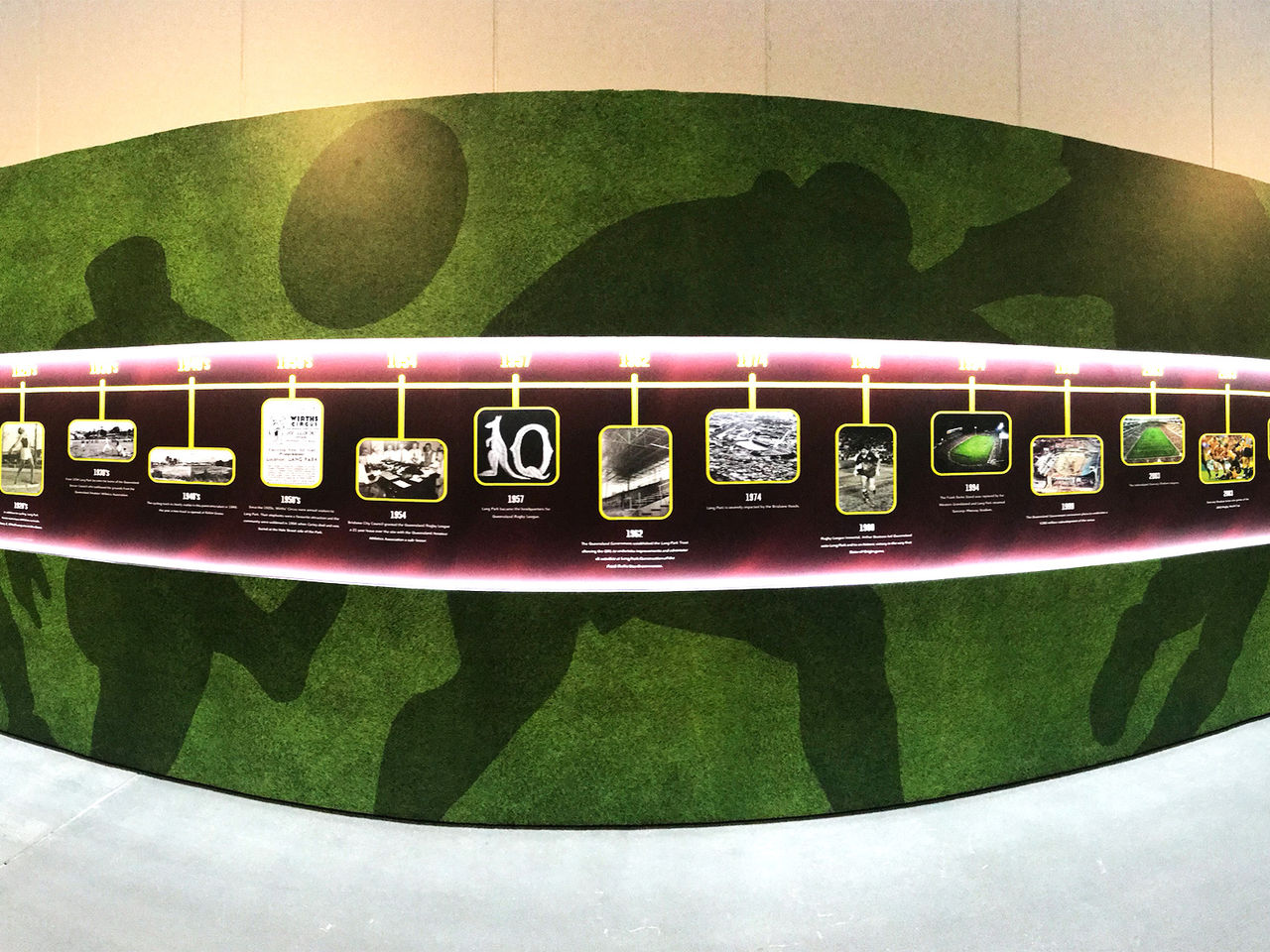The history of Suncorp Stadium
Suncorp Stadium has a rich history within the Brisbane landscape. Below is a timeline of the history of the site since the mid-1800s.
A physical history wall is also located in the venue on Level 5 north, outside the Paddington Room. Visit the wall on Level 5 next time you're in or simply scroll down to view the history of the venue!
A physical history wall is also located in the venue on Level 5 north, outside the Paddington Room. Visit the wall on Level 5 next time you're in or simply scroll down to view the history of the venue!


































